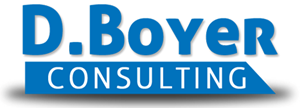Business is mostly conducted via email or phone communications.
Office hours 10:00 a.m. to 6:00 p.m, Mon. - Thurs., and 10:00 a.m. to 2:00 p.m. on Fridays.
SEND EMAIL INQUIRIES DIRECTLY TO:
Dawn.Boyer@me.com
Business is mostly conducted via email or phone communications.
Office hours 10:00 a.m. to 6:00 p.m, Mon. - Thurs., and 10:00 a.m. to 2:00 p.m. on Fridays.
SEND EMAIL INQUIRIES DIRECTLY TO:
Dawn.Boyer@me.com
Business is mostly conducted via email or phone communications.
Office hours 10:00 a.m. to 6:00 p.m, Mon. - Thurs., and 10:00 a.m. to 2:00 p.m. on Fridays.
SEND EMAIL INQUIRIES DIRECTLY TO:
Dawn.Boyer@me.com
Can company and recruiter social media and customer service relate to ‘Employer of Choice’ decisions?
May 22nd, 2013 by Dawn Boyer
CompanyReputationEmployerOfChoice
(Click above link to listen to the story as a podcast!)
Can social media and customer service relate to ‘Employer of Choice’ decisions?
Recruiter’s jobs are to find a perfect candidate for a company or client needing a job filled. Recruiters must be respectful, courteous, accommodating, and pleasant to deal with as the face of the corporate entity. Their goal is to demonstrate and convince the candidate their company is an ‘Employer of Choice’ to applicants seeking positions. But what happens when the company has a ‘bad reputation?’ The best they can do is hope the job candidates don’t know about the ‘negatives’ related to the business.
Many applicants are hoping for that phone call for an interview, but don’t think to investigate the company. There are many venues to do the research. One of the best ways to learn more about the company environment is via social media, Internet research, and industrial guides. It’s easy to log into websites focusing on providing data about the company, as well as checking social media pages such as Facebook and LinkedIn for employee (or ex-employee) commentaries.
An Internet search for ‘Rate My Employer’ turns up GlassDoor.com and RateMyEmployer.com. You can also find company data at Business Wire, Hoover’s Online, WetFeet.com, EarningsWhispers.com, Annual Reports Library, Forbes Lists of Best Companies, Thomas Register, and Wright Research Center for salary ranges and employee feedback. Use key search terms of the company name inside quotes and a plus sign combined with key words (+Watch) to see if organizations have the company on a watch list for unethical business practices. Check with customer feedback sites, also, for what the business customers are saying (see list below).
What are job seekers looking for? Is the company potentially on a government regulatory list of organizations that need to report regularly to the oversight agency such as the Securities and Exchange Commission (SEC)? What news stories have been published within the last year about the company – were they PR stories (positive) or investigative (negative) stories? Are there ‘alternative’ media covering stories for conspiracy theories or are they ‘kooks’ throwing out theories. Take what is read on the Internet with a grain of salt, read the reports, and write solid interview questions to ask the hiring manager.
This brings to point, companies need to mind their p’s and q’s on any social media platform – including all the top 5-10 major venues: LinkedIn, Facebook, YouTube, Pinterest, and Twitter, as well as customer feedback sites such as Yelp, Angie’s List, Merchant’s Circle, Better Business Bureau, Yahoo Local, and others. A company’s publicity team or social media manager should have RSS feeds set up on all the major search engines to notify the PR team immediately of company mentions. There should be an ‘Investigate & Mitigate’ plan for negative commentary.
Do you remember the unhappy flyer, Dave Carroll, trying to get a response from United Airlines about a damaged $3,500 guitar? He recorded a YouTube video – with 12 million views by the fall of 2012. United Airlines lost millions – and many customers – when all they had to do was respond to Carroll, apologize, and ask him what would make him happy. Ken and Meredith Williams had a similar problem with a bank for a mortgage and posted a YouTube video. Within 48 hours it got the attention of a TV station, and immediately after, the bank giving them the run-around.
Who wants to work for a company that is heartless and unresponsive to their customers? How does that speak to managing their employees? Social CRM conducted a study finding that 70% of companies ignore customer complaints on Twitter. A RightNow Customer Experience Impact Report noted 89% of consumers went to a competitor after a poor customer experience; 50% of consumers gave the business only one week to respond. This emphasizes a need for a speedy response.
Imagine a recruiter is searching for valuable candidate and that ‘perfect’ candidate comes across some negative social media posts about the way the company does business? Recruiters might be fighting a losing battle convincing the potential new hire to come on board with a ‘loser company’ (unless the job is to fix the company image!). Recruiters need to work hand-in-hand with marketing and PR to ensure job applicants see a positive side of the business and the result is the business is an ‘employer of choice.’
Job seekers need to pay attention and perform due diligence about the company for whom they wish to work. Companies who want to retain a positive image for not only their customers, but to attract and retain future employees, need to conduct themselves in a responsive and positive manner so there’s no reason for ‘unhappy’ employees or clients to post negative commentary.
Dawn D. Boyer owns D. Boyer Consulting – a career services coach, social media management, business development, and human resources consultant. She can be reached at Dawn.Boyer@DBoyerConsulting.com or https://dboyerconsulting.com for resume writing services, LinkedIn training, or career social media management.
Readers Comments
Can company and recruiter social media and customer service relate to ‘Employer of Choice’ decisions?
May 22nd, 2013 by Dawn Boyer
CompanyReputationEmployerOfChoice
(Click above link to listen to the story as a podcast!)
Can social media and customer service relate to ‘Employer of Choice’ decisions?
Recruiter’s jobs are to find a perfect candidate for a company or client needing a job filled. Recruiters must be respectful, courteous, accommodating, and pleasant to deal with as the face of the corporate entity. Their goal is to demonstrate and convince the candidate their company is an ‘Employer of Choice’ to applicants seeking positions. But what happens when the company has a ‘bad reputation?’ The best they can do is hope the job candidates don’t know about the ‘negatives’ related to the business.
Many applicants are hoping for that phone call for an interview, but don’t think to investigate the company. There are many venues to do the research. One of the best ways to learn more about the company environment is via social media, Internet research, and industrial guides. It’s easy to log into websites focusing on providing data about the company, as well as checking social media pages such as Facebook and LinkedIn for employee (or ex-employee) commentaries.
An Internet search for ‘Rate My Employer’ turns up GlassDoor.com and RateMyEmployer.com. You can also find company data at Business Wire, Hoover’s Online, WetFeet.com, EarningsWhispers.com, Annual Reports Library, Forbes Lists of Best Companies, Thomas Register, and Wright Research Center for salary ranges and employee feedback. Use key search terms of the company name inside quotes and a plus sign combined with key words (+Watch) to see if organizations have the company on a watch list for unethical business practices. Check with customer feedback sites, also, for what the business customers are saying (see list below).
What are job seekers looking for? Is the company potentially on a government regulatory list of organizations that need to report regularly to the oversight agency such as the Securities and Exchange Commission (SEC)? What news stories have been published within the last year about the company – were they PR stories (positive) or investigative (negative) stories? Are there ‘alternative’ media covering stories for conspiracy theories or are they ‘kooks’ throwing out theories. Take what is read on the Internet with a grain of salt, read the reports, and write solid interview questions to ask the hiring manager.
This brings to point, companies need to mind their p’s and q’s on any social media platform – including all the top 5-10 major venues: LinkedIn, Facebook, YouTube, Pinterest, and Twitter, as well as customer feedback sites such as Yelp, Angie’s List, Merchant’s Circle, Better Business Bureau, Yahoo Local, and others. A company’s publicity team or social media manager should have RSS feeds set up on all the major search engines to notify the PR team immediately of company mentions. There should be an ‘Investigate & Mitigate’ plan for negative commentary.
Do you remember the unhappy flyer, Dave Carroll, trying to get a response from United Airlines about a damaged $3,500 guitar? He recorded a YouTube video – with 12 million views by the fall of 2012. United Airlines lost millions – and many customers – when all they had to do was respond to Carroll, apologize, and ask him what would make him happy. Ken and Meredith Williams had a similar problem with a bank for a mortgage and posted a YouTube video. Within 48 hours it got the attention of a TV station, and immediately after, the bank giving them the run-around.
Who wants to work for a company that is heartless and unresponsive to their customers? How does that speak to managing their employees? Social CRM conducted a study finding that 70% of companies ignore customer complaints on Twitter. A RightNow Customer Experience Impact Report noted 89% of consumers went to a competitor after a poor customer experience; 50% of consumers gave the business only one week to respond. This emphasizes a need for a speedy response.
Imagine a recruiter is searching for valuable candidate and that ‘perfect’ candidate comes across some negative social media posts about the way the company does business? Recruiters might be fighting a losing battle convincing the potential new hire to come on board with a ‘loser company’ (unless the job is to fix the company image!). Recruiters need to work hand-in-hand with marketing and PR to ensure job applicants see a positive side of the business and the result is the business is an ‘employer of choice.’
Job seekers need to pay attention and perform due diligence about the company for whom they wish to work. Companies who want to retain a positive image for not only their customers, but to attract and retain future employees, need to conduct themselves in a responsive and positive manner so there’s no reason for ‘unhappy’ employees or clients to post negative commentary.
Dawn D. Boyer owns D. Boyer Consulting – a career services coach, social media management, business development, and human resources consultant. She can be reached at Dawn.Boyer@DBoyerConsulting.com or https://dboyerconsulting.com for resume writing services, LinkedIn training, or career social media management.














